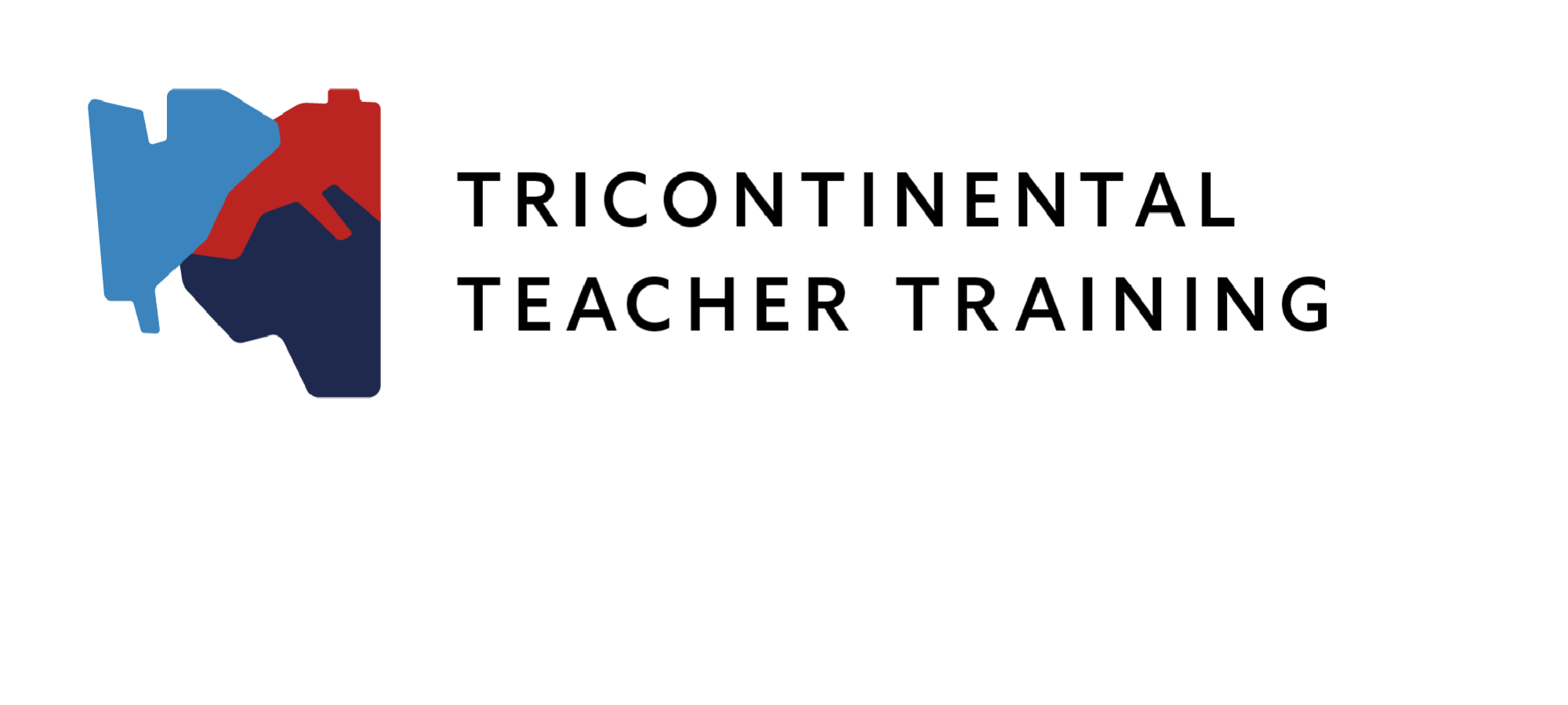After our first week was mostly settling in, adjusting to the New cultural surroundings, and getting used to the climate, the second week was packed with sports activities and first teaching experiences. Furthermore, our buddies as well as some children in the schools taught us more and more words of the local languages like Fante and Twi.


Previous TTT participants suggested that we should participate in some extracurricular activities to engage in the campus life, so we decided to check out Handball, Tennis, and Football training. By now, we exchanged contacts with multiple university sport coaches and are regulars in their afternoon training programs. Sports are not only important in our leisure time but also during our school internship because all the schools will compete in a big inter-school tournament at the beginning of March. This means that the children are very excited to compete and highly motivated to represent their respective schools on the pitch.
However, this sometimes leads to changes in their timetables when lessons are “suddenly” canceled and replaced by a sport program. Whenever lessons are taking place, we further observe Ghanaian teaching practices and also taught some first lessons ourselves.
The first full week at school showed that children are mostly supposed to listen to what the teacher is saying and only participate in class when they answer closed questions from time to time. The teacher is always present and gives theoretical input, even in subjects like science or information technology that are highly practical in our German school system. There is no differentiation in teaching material that would cater to the individual students‘ needs. Furthermore, as a group, we were surprised that various schools are lacking basic infrastructure like proper washrooms and pupils sometimes don’t even have exercise books. There are no printed worksheets either because the teachers would have to pay for the printing and the paper.
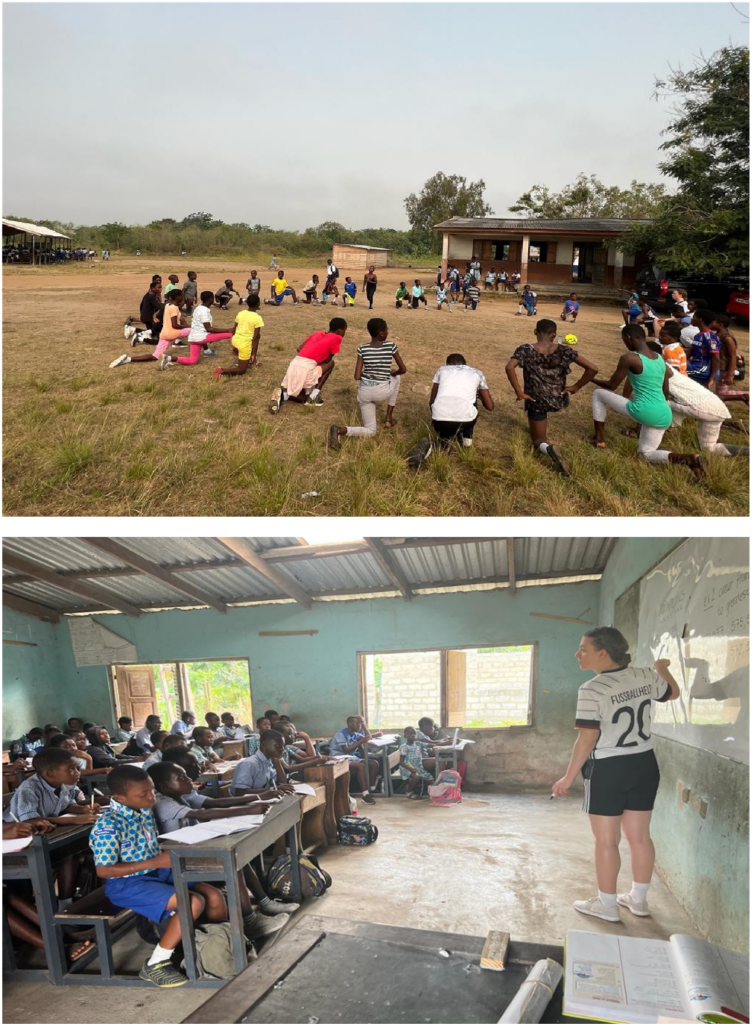

Our host families keep assisting us in every day needs and are always keen on teaching us Ghanaian values and traditions. For example, we learned that it is really important on which week day you were born. Family members will usually call you by these names at home. Some of them took us to the tailor at the Central Campus to look for some fabrics and patterns for clothing. Additionally, “Pearl Richard”, who is a good friend of one of our mentors, showed us some hand-made bracelets, anklets, and necklaces. We could even tell him what we wanted and he would make them specifically how we wanted them to look.

To reflect on the first two weeks of the program, a debriefing was scheduled on Thursday afternoon. This meeting turned out to differ from what we expected. We imagined it to be a meeting that focuses on our reflection of experience, culture shocks, and tackle whatever problems had occurred. Instead, the focus was rather on what the different existing as well as upcoming programs are about. So, besides the TTT students from Germany and Ghana, the DiCoT students and their buddies were also present. This made the meeting a bit too inflated. We hope that there will be a possibility to do a more personal reflection in the upcoming week–maybe with Prof. Telse.
On Saturday, we visited historic cultural sites in the Central Region such as Cape Coast Castle, Assin Manso Slave Market, and the Kakum national park. Our alarms sounded way before sunrise as we had to leave from the university campus at 5 a.m. in the morning. After nearly three hours of driving, we arrived at our first destination: The Assin Manso Slave Market. This place served as a trade point for slaves coming from all across West Africa. They were led there to bath and then get sold. After being sold, many of them were brought to Cape Coast Castle to be shipped to the Americas. That was the place, that we visited afterwards. A guide presented us the dark history of the place. It shocked us that every chamber of the dungeon (see the picture below) held 200 male slaves. They stayed there between two and twelve weeks before being loaded onto the ships. One of the most memorable moments was, when the guide switched off the light to give us a very brief impression of the how the slaves felt in the dungeon.

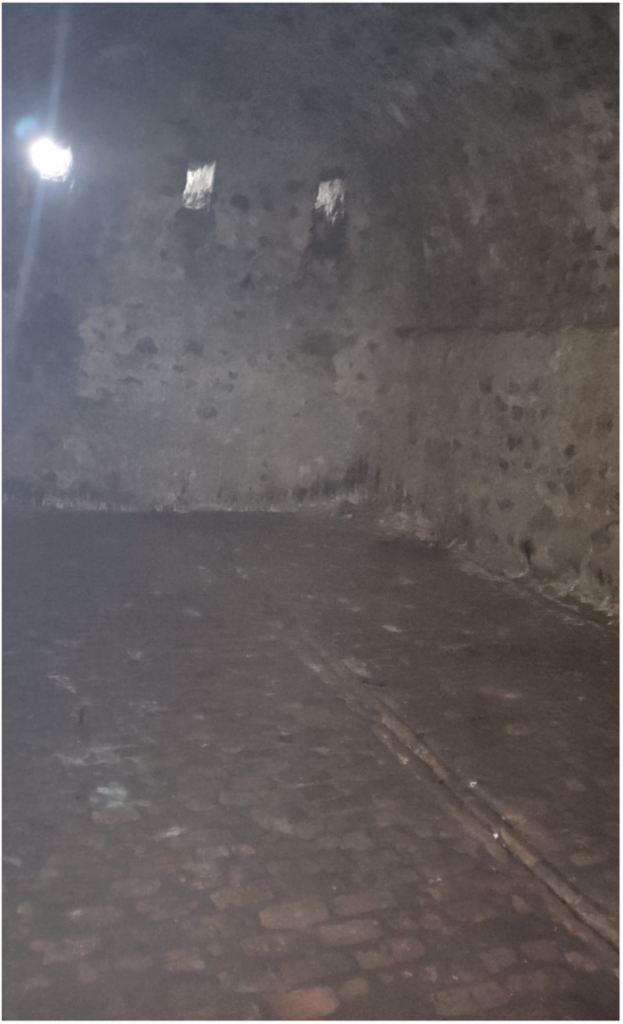

Between the Slave Market and Cape Coast Castle we explored the Kakum National Park. There is a canopy walk above the jungle which we went on. Furthermore some of us tried their first coconut – what a great taste! So, the day was filled with Ghanaian history, culture and nature – emotional, informative and thought-provoking.
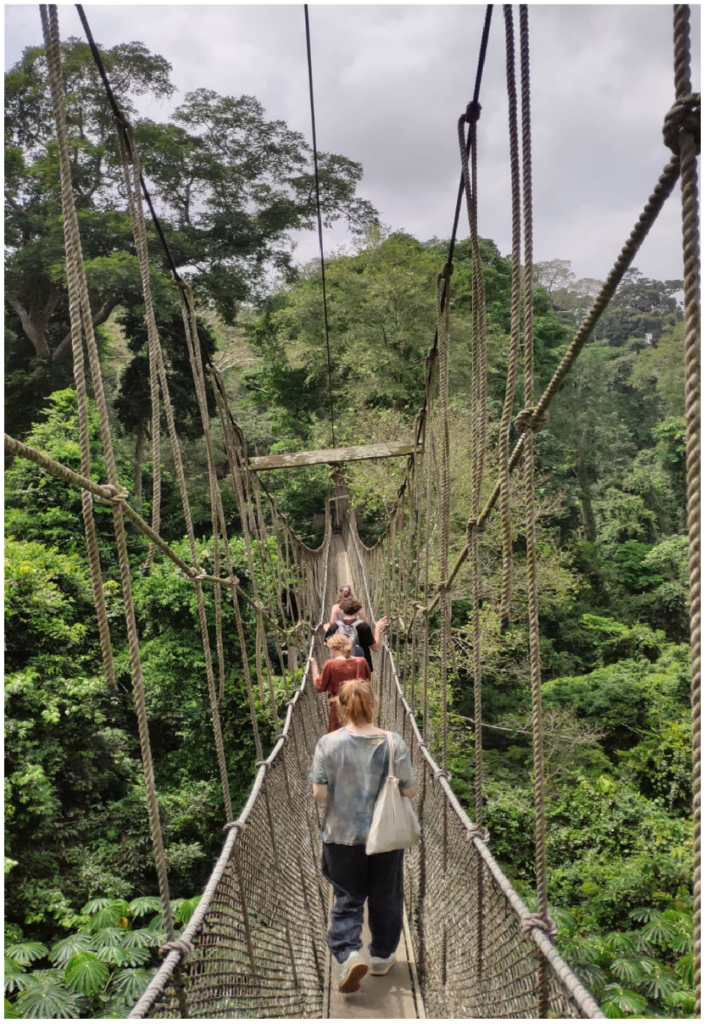
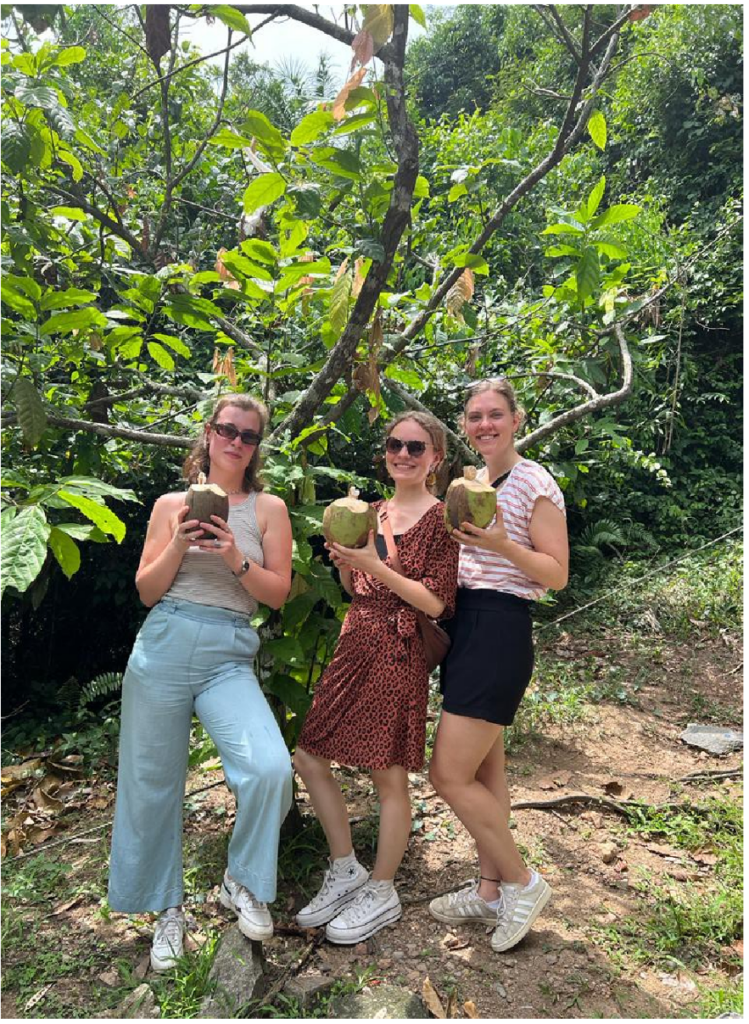
Now we’re looking forward to week three, expecting Prof. Telse, a cooking competition and further insides to the Ghanian school system.
Sarah, Rahel and Dani
